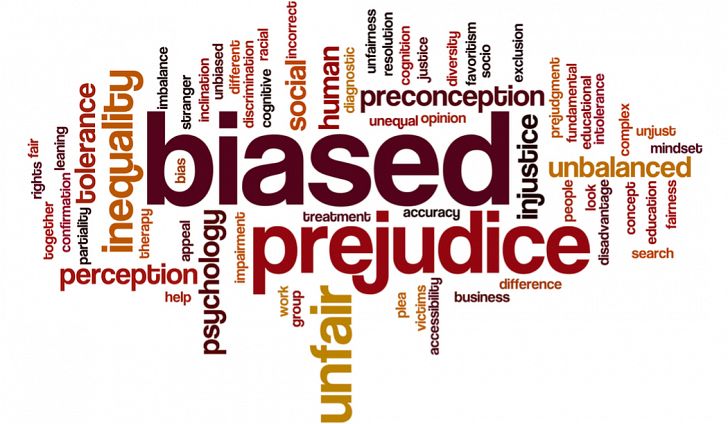By Rebecca A. Reid and Todd A Curry
Inside Higher Ed, April 12, 2019.
Every time we go to national academic conferences, we notice the lack of diversity in terms of people and research. Although scholars have acknowledged racial and gender underrepresentation for decades, political science still seems surprised that it has not made much progress.
Despite its efforts, political science fails to acknowledge the problematic structure of academe itself, which is exclusionary by design. All of us have inherited a white, heteronormative, male template, and our institutions perpetuate it. And instead of addressing this, political science prioritizes policies that are either assimilationist or meaningless. Without having this discussion and implementing solutions, academe will never appropriately diversify because it never really tried.
‘ . . . from their very entry point into academe, [women and people of color]students experience a chain reaction of marginalization that jeopardizes their job market success’
Higher education’s white male template, as P. L. Thomas, professor of education at Furman University, calls it, insidiously produces barriers for scholars throughout their entire careers, disproportionately affecting women and people of color. This template dictates certain research agendas, epistemologies, and methods as legitimate while discarding or marginalizing those that do not fit neatly within this framework. In essence, Thomas says, it “frames a white male subjectivity as the norm (thus ‘objective’), rendering racialized (nonwhite) and genderized (nonmale) subjectivity as the ‘other,’ as lacking credibility.” Scholars who focus on critical theory, race, gender, ethnicity, sexuality and identities, qualitative methods and the like are marginalized because their work is supposedly not “objective” science. Rather, it is political advocacy masquerading as scholarship — attractive only to specialized audiences and self-serving. In terms of epistemology, write Julie Novkov and Scott Barclay, “dominant research areas and disciplinary culture political science is still oriented primarily around the experience of white heterosexual males.” Because women and people of color are more likely to pursue nontraditional research, these biases disproportionately discriminate against them where “women faculty and faculty of color report feeling that their colleagues view their research as tangential, self-serving, and that it was not ‘pure’ science.” And these biases discriminate against them for their entire careers.

Institutional biases begin marginalizing students as they determine their research interests and thus their graduate programs. Aspiring scholars in specialized or nonmainstream areas find themselves already disenfranchised in that their program is typically not considered the “top program” or especially “prestigious” because mainstream scholars are usually unfamiliar with its scholarship and quality.
Further, graduate program selection determines students’ opportunity for mentorship, resources and networks. Hence, from their very entry point into academe, students experience a chain reaction of marginalization that jeopardizes their job market success because they are perceived as insufficiently qualified or as “not the right fit” for a department. And “not the right fit” is still code for the fact that those hiring: a) perceive the individual as not a real scholar, b) do not want or cannot see themselves working with the individual, and/or c) believe the probably token individual will not be happy in the department and thus will leave. In fact, 2015 APSA placement surveys reveal that 13 to 29 percent of people of color and women job candidates were not hired at all, while another 13 to 20 percent of those candidates secured only non-tenure-track jobs.
Even once working at a tenure-track job, the scholar continues to be marginalized, as tenure and promotion rely on the same “objective” metrics as the job market. The fundamental problem with colorblind, “objective” evaluations is that, while generally well intentioned, they simply ignore social inequalities, thereby enabling such systemic inequities and legitimizing the very practices that maintain these inequities.
For example, women tend to publish less than their male peers, are less represented in top journals, are less likely to be invited to contribute to edited volumes, are cited less frequently, have fewer graduate and postdoctoral students, receive smaller grant funding, and are less likely to appear on professional panels at conferences.
Teaching loads and service demands are disproportionate as well, where women and scholars of color spend greater amounts of time teaching, experience biased student evaluations and are overburdened with service requirements that are often invisible and uncredited. These institutional features generate and perpetuate gendered and racial disparities in likelihood of promotion. It’s no wonder that academe suffers from a leaky pipeline where scholars, predominantly women and people of color, leave the discipline at alarming rates — especially when combined with salary inequality, lower job and professional satisfaction, systematic experiences with discrimination, and hostile climates in research and teaching.
We suspect that the main reason for the lack of discussion and reform to truly address the lack of diversity and inclusion is the fear that including alternative types of research would undermine the excellence and rigor of the scientific endeavors. More simply, due to the perception that such scholarship is not “real” science, including them would taint the discipline. Hence, the exclusionary nature of academe presumably safeguards the discipline’s scientific credibility, validity and objectivity.
This argument is misguided. First, quantitative methods offer only a false veneer of objectivity. The numerical data we collect and analyze harbor the same biases, priorities and assumptions as the collectors and users. Second, poor research is determined by the peer-review process and is not an inherent feature of any research agenda or methodology. Third, specialized scholars are not underqualified — they went through the same academic course work, training and professionalization as their colleagues, all the while facing more obstacles at every step. Fourth, even when the scholar specializes in an area where they are a member of the subject group, this scholarship goes through the same peer review as every other reputable publication. Fifth, the underrepresentation of nonmainstream research in prestigious journals is due to self-enforced and pervasive bias, not inferiority.
Rather, by including instead of marginalizing scholars, higher education will enjoy richer data analysis that combines contextual and theoretical knowledge with empiricism to facilitate greater analytical insight and relevance of the field. In addition to being valuable in its own right, this scholarship propels narrowly construed, theoretically unsophisticated concepts and relationships into more appropriate and dynamic ones. Quantitative work often relies upon broad assumptions of the static political concepts, such as including a categorical variable for “race” without discussing the underlying conceptas a biological construct, cultural construct, social-class construct, something in between or some combination. Treating this concept as existing beyond political and social landscapes generates misrepresentations that produce, legitimize and perpetuate racism.
Thus, scientific rigor and merit are not mutually exclusive with diversification and inclusion. All of the decisions we make regarding what is “valid” research are political, subjective and an expression of power — assumptions that have been largely determined by the white, heteronormative, male legacy of academe. If we’re serious about diversification, then we have to do more than pay lip service and go beyond quota-style assimilationist policies and discuss these underlying issues. Otherwise, we have to admit we don’t want it.
Rebecca A. Reid is assistant professor in political science at the University of Texas at El Paso.
Todd A. Curry is assistant professor in political science at the University of Texas at El Paso.











